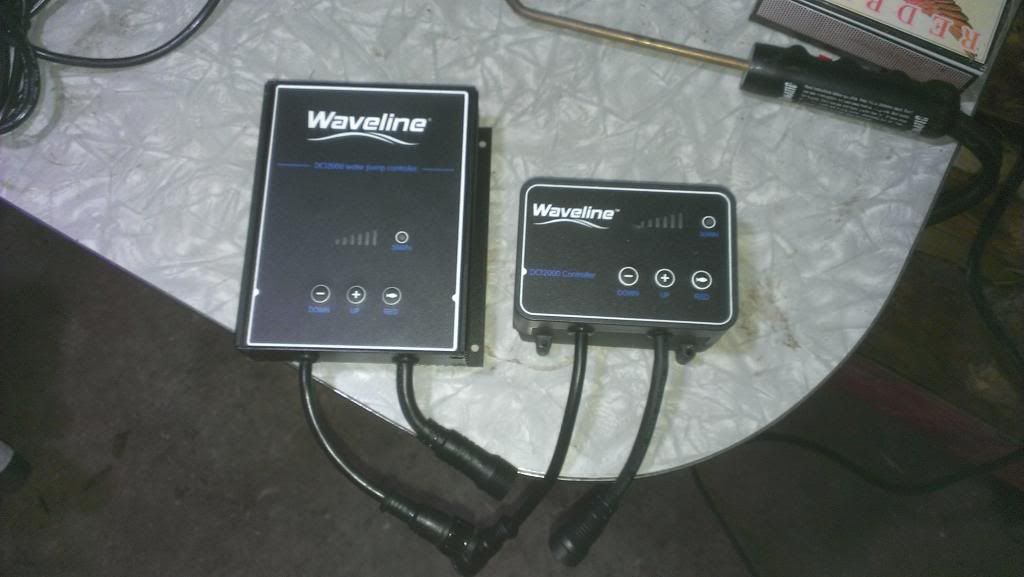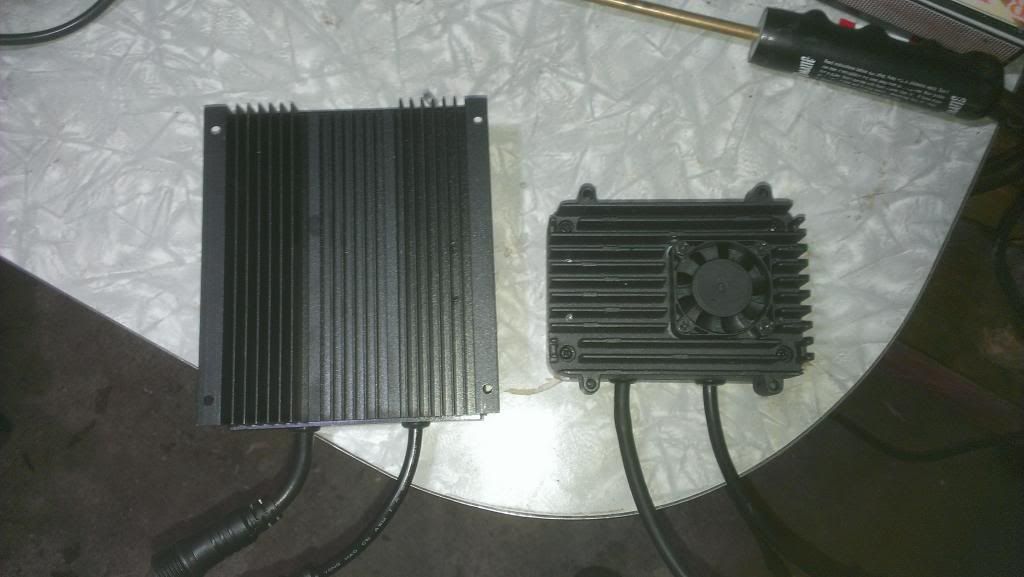
 |
|
|
|
#1
|
||||
|
||||
|
Hey guys...
Quick few questions about the new DC pumps on the market... I've noticed that a lot of people are swayed by the power savings and the quiet operation of these pumps. Price point wise, I'm seeing a lot of people using the Jebao DC series pumps and having decent luck. I'm currently in the planning stage of a build and I'm wondering how well do these pumps do if left outside the water as my intent is to use two Jebao DC2000 as closed loop pumps as wavemakers and a DC9000 as a main circulation pump. Tank in question is a Custom Acrylic 165Gal ( 53 x 24 x 30 Display Area ) with integral overflow across the full length of the back pane ( 53 x 6 x 6 ) where all the plumbing and the drains will be hidden and overall tank dimension will be 53 x 30 x 30. Also does anyone have any information about the pin out of the pump as I'm also thinking about building a 3 CH DC Pump controller that has an Arduino friendly interface for control. This will be done through either SPI, I2C, CANBUS or even PWM. Any input at this point is greatly appreciated! PS: I will be posting pictures from SketchUp of the tank latter on tonight. |
|
#2
|
|||||
|
|||||
|
My experience so far with a Jabeo DC6000 for a recirc skimmer is not good. Pump runs fine, but leaks. I've taken it apart several times to try and reseat the o ring, but it always leaks.
|
|
#3
|
||||
|
||||
|
These two pumps are marketed as submersible which usually means they have no way of cooling themselves and are not guaranteed against leaking. Take it for what you want but Fishstreet even specifically states "Internel Use Only! DC Pump do not suppose for External Use." I just copied and pasted the bad English.
|
|
#4
|
||||
|
||||
|
I had a different branding of the DC9000 I think. It was nice when it worked, and then it suddenly died a year after owning it. I only ever used it submerged though. Was certainly quieter, but it was more a different sound (more like a propeller than the AC hum). J&L doesn't seem to even sell them anymore so I'd assume that's why.
|
|
#5
|
||||
|
||||
|
I have a 1320 DC speed wave & controller and been using it for a year with no issues, the secret is to keep the power supply cool. BTW it's available for $75
__________________
Hey! I never "LEFT" the hobby, just doing fresh water now. Which is still listed as part of Canreef if I'm not mistaken. |
|
#6
|
||||
|
||||
|
I have 2 of the speedwave brand (most of the pumps are identical) operating as a closed loop outside of the water for about a year. No leaks. Fairly quiet. I do have them wired into an arduino controller ramping them up and down.
I have gone through a few powersupplies (replaced under warranty). Keep them cool and they are fine. |
|
#7
|
||||
|
||||
|
Thanks a lot guys !!! This is Great input here
 DC pumps are still in their infancy, but they do prove to be more efficient and quiet. Being able to control the speed / flow is a big plus for those that want wave maker. Quote:
|
|
#8
|
|||||
|
|||||
|
Quote:
After a lot of whining and complaining RLSS has sent me new controllers for ALL my pumps and they seem to be much better at dissipating heat. For giggles, I mounted one of the old controllers to the bottom of a floor joist so that the fan was open to the air (it's running my external skimmer) and it's been humming along for almost a year now with no issues OTHER than a really noisy bearing on that little fan. Here's the difference between the old and new controllers:   |
|
#9
|
||||
|
||||
|
Quote:
__________________
Hey! I never "LEFT" the hobby, just doing fresh water now. Which is still listed as part of Canreef if I'm not mistaken. |
|
#10
|
||||
|
||||
|
This is what I don't get about "engineers"...
Why the HELL would you mount a heatsink at the back of the unit where there is little to NO airflow when mounted ??? The current plan for mine will be simple... An SPI controlled 6CH LED driver ( PWM ) that in turn will drive 4x 25A SSR's ( Solid State Relays ) This way interfacing to a Arduino or any other micro controller will be as simple as a few lines of code |
 |
| Thread Tools | |
| Display Modes | |
|
|